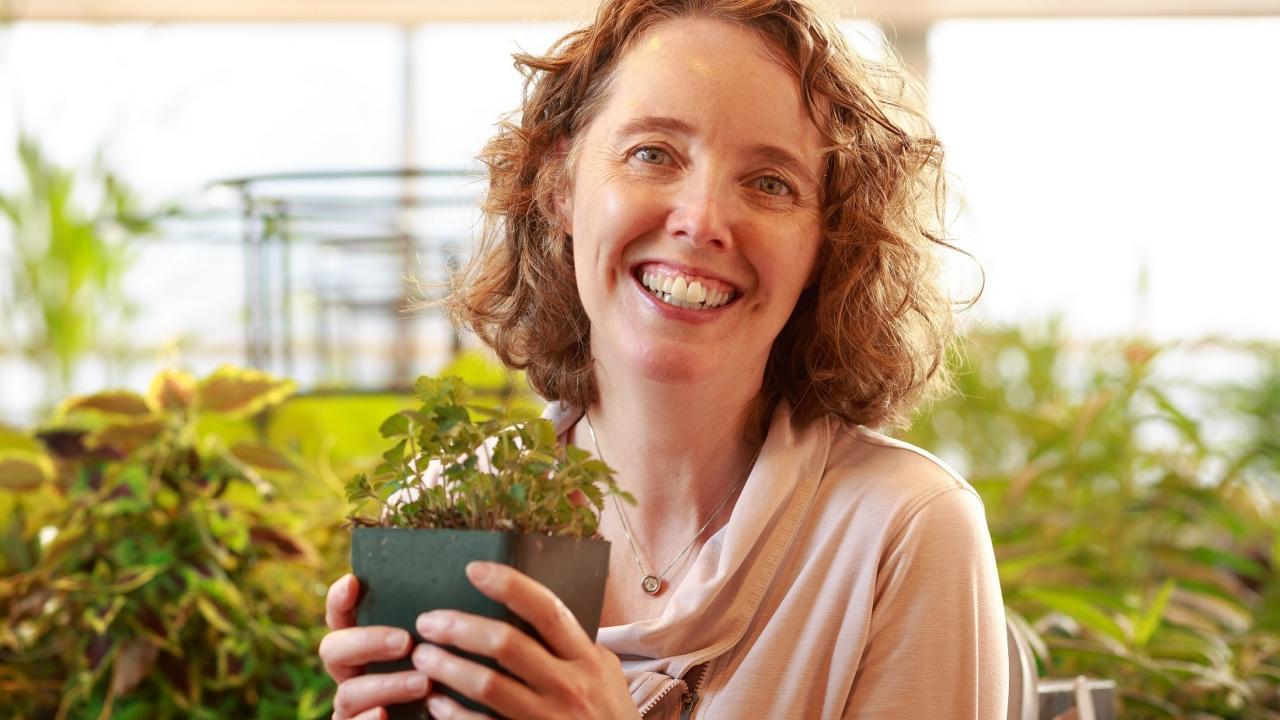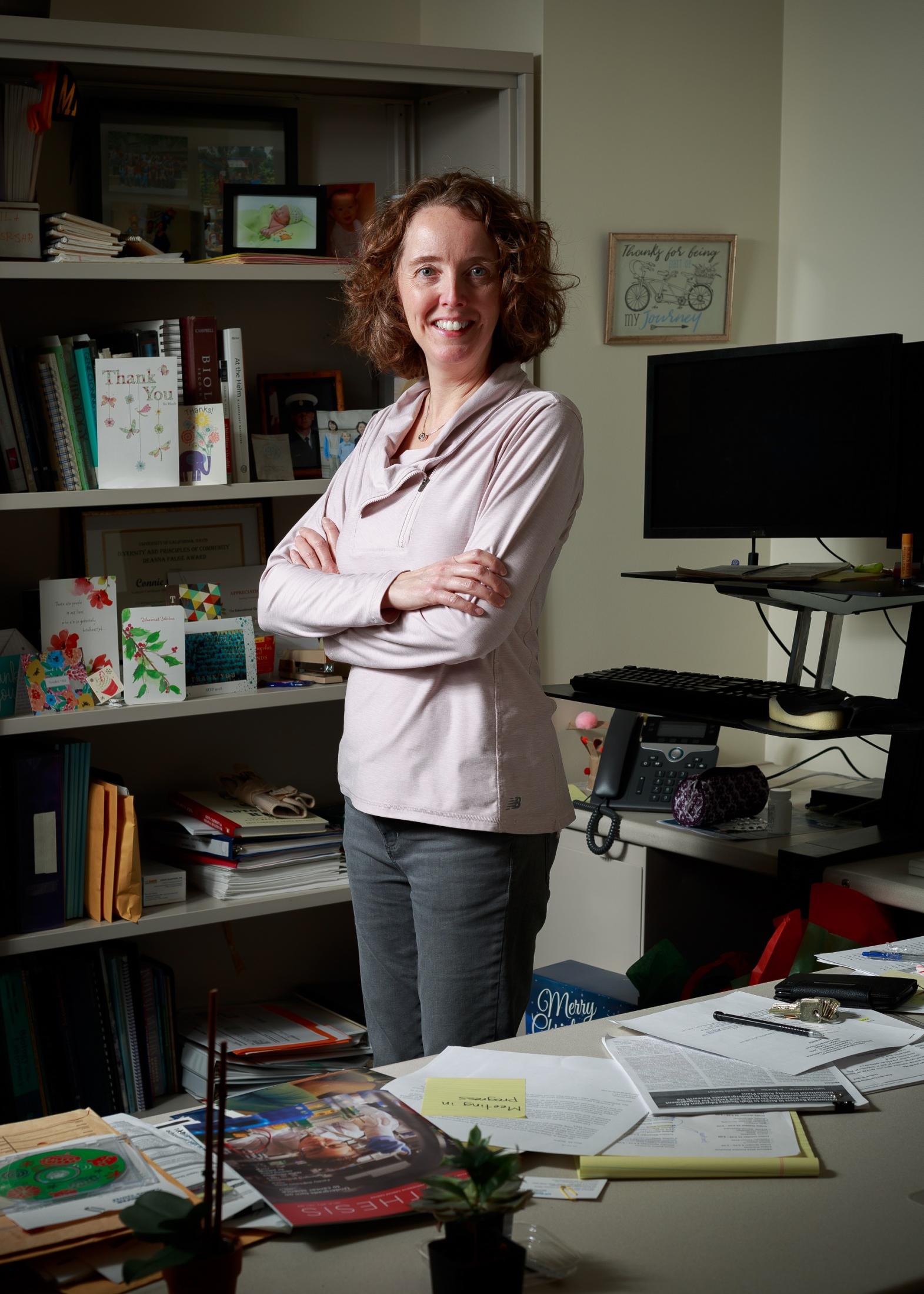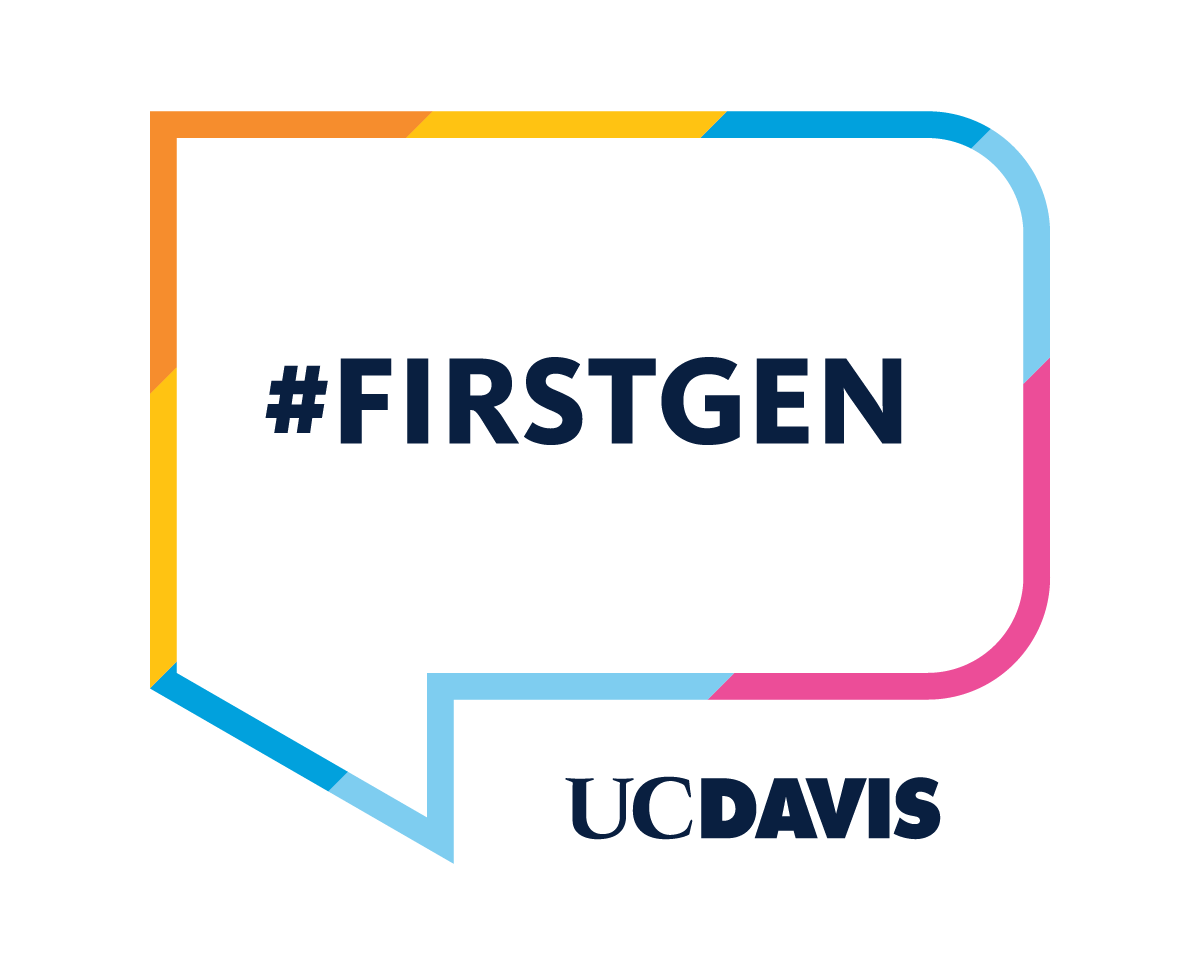
Stumbling into Science - Connie Champagne
Connie Champagne
Director, Educational Enrichment and Outreach Programs
- Interviewed by Foxy Robinson
Connie Champagne is the Educational Enrichment and Outreach Programs Director, housing the Biology Undergraduate Scholars Program (BUSP) and Advancing Diversity in Aging Research (ADAR) among other undergraduate research programs. Coaching underrepresented minorities, disadvantaged, and disabled students, she supports them on their journey to succeed with degrees in life sciences.
I come from a fairly large community in Canada, north of North Dakota and Montana. The region had a lot of social problems and poverty. This was not Toronto, Montreal, or Vancouver. It was behind the times when I grew up and was filled with people who cling to their culture and heritage.
My mother, at 16, had me and married my father, and didn’t have the opportunity to complete the 10th grade. The community policy was: a young married woman with a baby was not allowed to return to high school. She worked a variety of jobs, like retail positions. At the end of her career, she was a pharmacy technician and was able to complete 10th grade through adult education. My father completed high school and worked in manual labor until he retired.
My parents always expected I would do well. I remember being young and doing poorly on a math test. My father insisted I do it over and over until I got one hundred percent. He had this expectation that I would do better.
I have no idea how I ended up in college! I really liked school. You could take two years of physics or two years of biology. I decided to take biology and didn’t like it at all. The teacher wasn’t inspiring and the material covering the kingdoms of life didn’t interest me. I almost didn’t take biology again, but had to take something, so I stuck with it.
We started talking about cellular mechanisms and metabolisms, and I went, “Oh, this is it! This is what I love!”
My parents did not encourage me to pursue higher education. They had no idea beyond that realm, and were surprised when I said I wanted to go to a university. They had no advice, suggestions, or even hopes for what I might major in or what field I might go into. It was very freeing because I didn’t have expectations to live up to.
It did not even occur to me to go to a university outside of my own Province, or even my own city. I had no exposure to anyone with an advanced degree.
As an undergraduate, I lived with my parents. Even though tuition is very subsidized in Canada, I worked summer jobs to pay tuition. I also earned scholarships from the University to help pay for fees.
I briefly flirted with the idea of going to medical school.
I didn’t know you could be a biologist. I didn’t know that was even an option. It was a revelation to me.
As an undergrad, I realized this was something I could do instead of going to medical school. Looking back, I was limited in my thinking.
I wish someone had told me to find another university to widen my horizons for my PhD. I could have gone anywhere in Canada with my scholarships, but stayed in the same place. It was what I knew and I was comfortable.
 Halfway through my PhD, I realized I had to get out of there. I had to go learn more and really connect with more experts in my field. I didn’t have particularly good mentors. It was a British style of education where you see your professors very infrequently. My professor was like, “Here’s your project. See you in a few years!” It was very alienating, but I was stubborn and I was totally making it up as I went along. I could have really benefited from mentorship. Now, I know how to be a better mentor, learning from their mistakes.
Halfway through my PhD, I realized I had to get out of there. I had to go learn more and really connect with more experts in my field. I didn’t have particularly good mentors. It was a British style of education where you see your professors very infrequently. My professor was like, “Here’s your project. See you in a few years!” It was very alienating, but I was stubborn and I was totally making it up as I went along. I could have really benefited from mentorship. Now, I know how to be a better mentor, learning from their mistakes.
I ended up at UC Davis as a Post-Doc. It was very weird for me to be able to walk down a hallway and see so many experts available right there.
When I arrived here, I was so envious of the undergraduates. I can’t believe you have access to all these resources, and all these mentors. I was blown away. The undergraduate experience here was so different from mine. This is a good place for you!
I think my background gave me “grit,” a certain work-ethic. When you watch your parents get up every day and work where they don’t want, it instills a kind of work ethic and grit. You have that stubborn nature that lends itself to success.
I wish someone told me not to focus so much on my grades. I was stressed out about getting grades for scholarships. I didn’t enjoy the learning and really regret that. Enjoy the learning!
I would also advise students to have more than one mentor. Having multiple perspectives helps.
Lastly, don’t be ashamed of not knowing. It’s okay to not know. It’s not okay to not know and not go find out. First-gen students think everyone knows what’s going on, and that’s not the case. There’s lots of students who are first-gen and they don’t know either.
